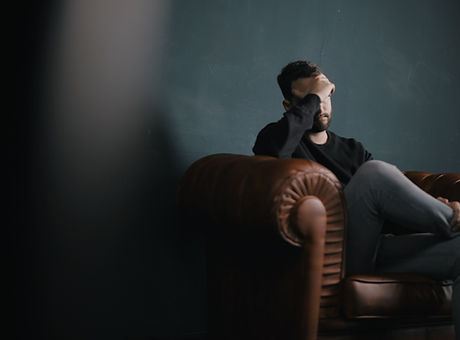WHAT IS DEPRESSION?
The National Institute of Mental Health (NIMH) defines depression (major depressive disorder or clinical depression) is a common but serious mood disorder. It causes severe symptoms that affect how you feel, think, and handle daily activities, such as sleeping, eating, or working. To be diagnosed with depression, the symptoms must be present for at least two weeks.
There are several different types of anxiety disorders. Examples include Persistent depressive disorder, Postpartum depression, Psychotic depression, Seasonal affective disorder, and Bipolar disorder.
SYMPTOMS OF DEPRESSION
Not everyone who is depressed experiences every symptom. Some people experience only a few symptoms while others may experience many. If you have been experiencing some of the following signs and symptoms most of the day, nearly every day, for at least two weeks, you may be suffering from depression:
SYMPTOMS
-
Persistent sad, anxious, or “empty” mood
-
Feelings of hopelessness, or pessimism
-
Irritability
-
Feelings of guilt, worthlessness, or helplessness
-
Loss of interest or pleasure in hobbies and activities
-
Decreased energy or fatigue
-
Moving or talking more slowly
-
Feeling restless or having trouble sitting still
-
Difficulty concentrating, remembering, or making decisions
-
Difficulty sleeping, early-morning awakening, or oversleeping
-
Appetite and/or weight changes
-
Thoughts of death or suicide, or suicide attempts
-
Aches or pains, headaches, cramps, or digestive problems without a clear physical cause and/or that do not ease even with treatment

